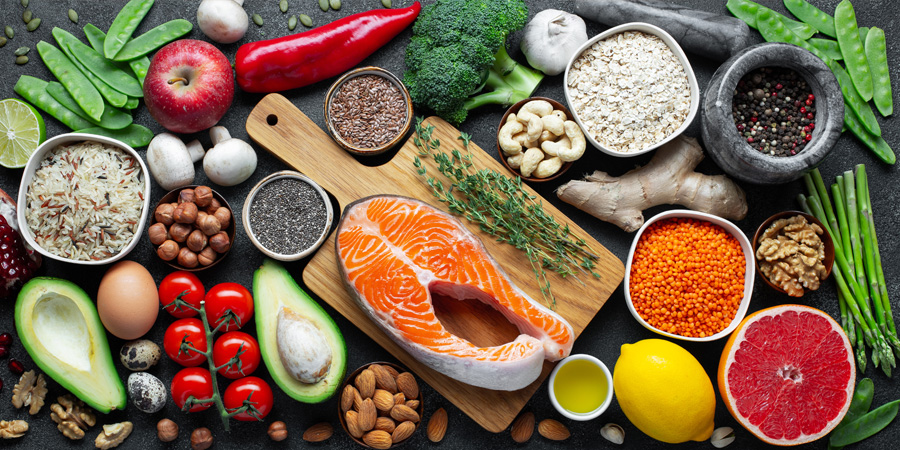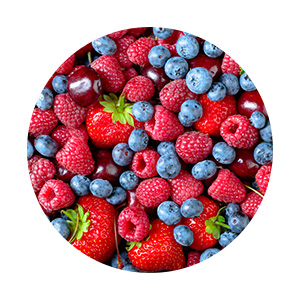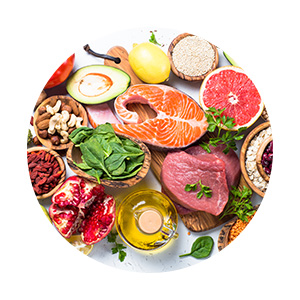Scientific news
Discover five recent scientific articles from our food, health and sustainability watch.


The prevalence of overweight and obesity (OAO) is rising rapidly around the world, leading to increases in non-communicable diseases. A recent study estimated the economic impacts of OAO for 161 countries using a cost-of-illness approach. In 2019, the impact was nearly 2.19% of global gross domestic product (GDP). If current trends continue, it could reach 3.29% of GDP by 2060. According to these forecasts, the biggest increase will be concentrated in lower-income countries, where the economic costs are 12 to 25 times higher than in high-income countries. This study highlights the need for a global action to reduce the prevalence of OAO and thus reduce its social and economic impacts.

Massive Open Online Courses (MOOCs ) are online platforms offering courses on various topics. To assess the relevance of such tools, a recent study evaluated the experience of participants in a nutrition-focused MOOC. A mixed-methods approach explored several parameters such as pre-course nutrition knowledge, post-course satisfaction and learning, and changes in fruit and/or vegetables intake. Researchers also conducted interviews and analysed forums comments. Overall reactions to the course were positive with more than 95% of participants being satisfied. Some participants reported changes in their eating habits, and more particularly 62% have increased their vegetable intake. According to this study, MOOCs can be effective to communicate evidence-based nutrition information to a large audience.

A systematic literature review presents the impact of COVID-19 lockdown on parental food-related practices and behaviors. Overall, the increase in time spent together seems to have had a positive impact on cooking. Most studies reported a consumption of a wider variety of food (fresh fruits and vegetables) as well as home cooked meals. While some households managed to adapt to online shopping and meal planning, others have experienced more difficulties. Indeed, food insecurity increased among families with the lowest income. These households adopted behaviors aimed at self-sufficiency (bulk purchasing, stockpiling of processed foods) which was associated with increased meal frequency and snacking. These findings demonstrate how COVID-19 pandemic has affected the family food dynamic, including low-income families, and highlight the need to strengthen the efforts to prevent food insecurity and obesity.

A Japanese study evaluated the association between vegetable and fruit consumption, particularly flavonoid-rich fruits, in mid life and major depressive disorder (MDD) in later life. Researchers collected data on fruit and vegetable consumption from 1,204 participants between 1995 and 2000. In 2014-2015, participants were interviewed by certified psychiatrics to diagnose MDD. The results indicated that the consumption of flavonoid-rich fruits was inversely associated with a diagnosis of MDD. These association remained significant after adjusting for sociodemographic factors. This study is the first to demonstrate the anti-depressive effect of flavonoid-rich fruits in a cohort including both men and women.

To determine how eating habits are consistent with a healthy and sustainable diet, American and Australian researchers developed a theoretic Healthy and Sustainable Diet Index (HSDI). This index included 12 items within 5 categories related to environmental sustainability : animal-based food, seasonal fruits and vegetables, ultra-processed energy-dense nutrient-poor foods, packaged foods and food waste. The highest score was set to 90 and indicated a closer alignment to a healthy and sustainable diet. The HDSI was applied to a 4-day dietary records from 247 adults aged between 18 and 30 years. The mean score was 42.7. Statistical analysis enabled researchers to associate some items of the HSDI to eating behaviors. Participants who ate meat were less likely to eat vegetables (p < 0.001) and those who ate non-animal protein foods were more likely to eat more fruits (p < 0.001), vegetables (p <0.05) and dairy products (p < 0.05). After adjusting for several variables, researchers demonstrated that participants who paid little or no attention to the health aspects of their diet were more likely to have a low index score.
